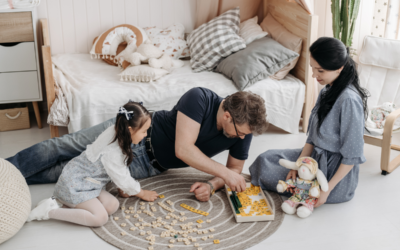For any young person, becoming an adult and leaving the home to start your own life can be a scary thing. It can be overwhelming all the choices available of what to do with your future and this can lead to anxiety for the young person. For a foster child, it is an even more difficult thing to enter adulthood and it generally doesn’t come with the excitement born of other children. It can lead to the young person having to answer big questions about their future that they don’t feel confident in yet. As a foster parent, it can sometimes be hard to know where to start in supporting your foster child in this transitioning stage of life. We have highlighted the three main stages of a young person moving out of the foster home and a few key things to think about in each of these stages. As always though, if you are unsure about anything regarding your foster child, please speak to your child’s social worker as they can guide you in the right direction or provide any support if you are feeling concerned about these stages.
The Preparation Stage
The transition to adulthood doesn’t just start when the child is nearing the age of 18, it starts much earlier. There are a range of skills that it is important for a young person to have so that they can feel confident entering the world on their own. Foster parents can help nurture and train a young person in these skills from a young age.
- Learning how to cook healthy meals; this also includes learning how to meal plan and do the groceries.
- Build healthy relationships; it is important for a young person to be given different situations to socialise in so that they can learn key social skills and how to understand different types of people.
- How to manage money; one of the biggest areas that foster children struggle with when they move out of home is how to handle money. Make sure your foster child knows how to budget, save for things, treat themselves in a responsible way and pay for bills.
- How to work; having an afterschool job in high school can teach a young person key skills about respect, time management, and hard work. These skills will be greatly beneficial to them when they leave home.

The Transition Stage
The transition stage generally starts 90 days prior to to the foster child moving out of home. At this stage your foster child’s social worker will sit down with the child and yourself and plan out a leaving home plan or transition plan. This is a government requirement to help support foster children leave home and get settled in their independence. Some other things to note or make plans for during this stage are;
- Making plans for secure housing
- Assisting them in securing full time or part-time employment
- Helping them explore further education options if they desire
- Working with them on a budget and setting up bank accounts and cards if this has not already been done
- Getting together their personal belongings including photographs
- Giving them access to their personal information including schooling reports or certificates, medical information, etc
The Aftercare Independence Stage
The aftercare independence is a stage that is sometimes forgotten or given less attention and this can be the time where a foster child’s chances at life are minimised as they lose confidence in themselves and don’t know who to talk to for support. There are a few key things you can do as a foster parent to help your foster child in this stage.
- Offer emotional support; this can be through the way you communicate to them. Many foster children only hear the limitations or stereotypes placed on them, so let them hear from you the potential you see in them and the positive high expectations you have for their life. Tell them that they can count on you to be there for them and that you are available if they are struggling for them to talk to you.
- When they achieve goals or progress, give them praise. It is good for them to feel proud of themselves even for taking small steps in the right direction.
- Invite them over for meals to provide community for them and social engagement.
- Encourage them to find role models and mentors of people older then them that they can look up to.

It can be a hard transition for both the foster parents and the foster child when they turn 18 and transition out of the foster home. Hopefully these small tips give you something to think about and help you to feel more prepared.
Comment below if you are a foster parent who has been through this transition and if there is anything else you think we should add to help other parents.
Glenhaven Family Care also consider it a high priority to support their foster carers so you can speak with your Long Term Care Support Worker if you have any concerns or questions regarding this area.





